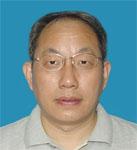FromGeneva
Thiru Balasubramaniam
February 6, 2007
On a cold winter's day (February 3, 2007) buffeted by hyperborean winds, around 70 participants including government officials (Belgium, China, South Africa and the United States), academics (Georgetown, Harvard, Hebrew University, MERIT, Santa Clara, University of Colorado and Yale) public interest groups (IP Justice, Knowledge Ecology International), corporate representatives (IBM, Microsoft and SUN), the World Bank and technologists met in the New England town of New Haven at the
Open Standards (OSIS) convened by the Yale Information Society Project. The OSIS was divided into four panels: (1) technology, (2) economics, (3) politics and (4) law. From my own perspective, while most people focused their attention on standards' impact on US technology vendors, a small but high level group of participants were deeply engaged in the global debates about how standards and intellectual property can be barriers to trade. In one sense, the collegiate discussions over the central question of whether non-disclosure of patent assets in standards constituted a barrier to trade served as a "proxy debate" between China and United States in lieu of actual consideration of this subject at the World Trade Organization.

In the economics panel several speakers including Rishab Aiyer Ghosh (MERIT) and An Baisheng (Ministry of Commerce, People's Republic of China) stressed the "network effects of standards which they asserted could serve as entry barriers to new technologies. Rishab Ghosh provided the example of the QWERTY keyboard as an example where a standard lead to path dependence. Furthermore, he noted that where
a network effect exists, often a natural monopoly is the best way to capture its value. An alternative involves separating the technology from the producer, this provides competition among vendors. The existence of rights such as IPR over a standard allow control/rent-seeking over the standard. Standard bodies try to limit this behavior. From an economic perspective, an open standard involves the coexistence of competition for the standard with a natural monopoly for the technology itself.

An Baisheng reiterated the idea that standards have network effects and highlighted the fact that parties with relevant IP assets in a standard would have the propensity to maximize their royalties through rent-seeking behavior. An raised the issue of disclosure of IP assets-e.g. what is the real cost of disclosure. In this context, he referred to China's submissions to the WTO Technical Barriers to Trade (TBT) committee including a paper (G/TBT/W/251) entitled
"Intellectual Property Right (IPR)Issues in Standardization tabled in May 2005 and a paper (G/TBT/W/251/Add.1) tabled in Nobember 2006 entitled
"Background paper for Chinese Submission to WTO on Intellectual Property Right Issues in Standardization (G/TBT/W/251). These timely papers raised a firestorm of controversy at the WTO with many Members wary of the subtle argument raised by the Chinese submissions, namely, the question of whether IPRs embedded in standards could be considered a technical barriers to trade, anathema to
certain WTO Members (guess who?).

In the politics panel, Mr. Huang Rengang, Minister Counsellor of the Permanent Mission to the WTO, People's Republic of China) did not beat around the bush when it came to the question of open standards unequivocally declaring "I am a big fan of open standards" and noting the efforts to silence the discussion of open standards in international fora in Geneva. Mr. Huang's presentation focused on three elements:
- "What role can international organizations like WTO play? When China tabled view on IPRs and standardization, there was divided opinion of this in the WTO. There needs to be more discussion of standards at the WTO".
- "How developing countries can play a role in the development of open standards? How can countries improve their effectiveness in developing standards? So far, developing countries have played a limited role. Developing countries need to do their homework. The current TBT Agreement poses limitations on these discussions".
- "How China has contributed to standards development, from a personal perspective. In ancient times. Chinese shared inventions such as paper and gunpowder. Our ancestors embraced the idea of sharing knowledge. Consider how different things would be if our ancesters guarded the secret to making paper and gunpowder".
During the intitial set of Q&A in the politics panel, your blogger asked Mr. Huang, "Do you see other fora as appropriate venues for discussion of open standards outside of the WTO TBT committee? How do you see its future within the TBT"? This question was grounded in
KEI's previous calls for
WIPO to
[a]ddress the problems faced by standards organizations, and in particular, those that involve essential interfaces for knowledge goods, such as software or Internet standards.
Mr. Huang Rengang responded by saying that when China submitted its standards papers to the WTO, questions were raised about its motivations including the "wanting to pay less royalties." Other Members decried that standards and IPR issues were not appropriate for agenda of the Triennial Review as it would imply that IPRs are barriers to trade and call for a revision of the TBT. Mr. Huang concluded by stating that the discussion of "open standards is unstoppable".

Victoria Espinel (Assistant USTR, Intellectual Property & Innovation, Office of the U.S. Trade Representative) informed the audience that the USTR recently included created a bureau on Intellectual Property and Innovation. She noted that standards were important to innovation policy and reminded us that the WTO has adopted guidelines for on how standards should be set and implemented. Ms. Espinel asserted that standards should be set in an open, transparent and inclusive manner. With respect to IP rights, she held the notion that they were sacrosanct and inviolable. According to her, one of the functions of the IPRs was they promote innovation. Usurping them when they are convenient she contended, was not the way to go. IPRs should be reassessed if they are not promoting innovation. She observed that the underlying question in this debate was the fear of competition with the looming threat of job loss. While advocating free trade Ms. Espinel acknowledged the challenge in balancing the benefits of competition with the interest of some segments of society who could lose out in the short term.
In collegiate exchange following her presentation Mr. An Baisheng of China questioned Ms. Victoria Espinel as to why China received so much pressure to drop their request to the WTO TBT committee. Ms. Espinel responded diplomatically by stating that she was not involved in the TBT negotiations referred to and that perhaps the WTO TBT negotiators were anxious in dealing with a topic (IP and standards) in which they lacked specialized expertise.

The superb quality of the Yale ISP Open Standards International Symposium in terms of content and the caliber of the panelists is testament to the efforts of the organizers, especially Laura DeNardis. Although the tenor of the open standards debates in this New England idyll remained cordial, they belied the greater stakes; one is reminded of James Carville's dictum "[t]he economy stupid". With antecedents in the WTO, WIPO and the Internet Governance Forum, this symposium underscored the point that open standards are indeed ready for prime time and are coming to an international forum near you and me.





